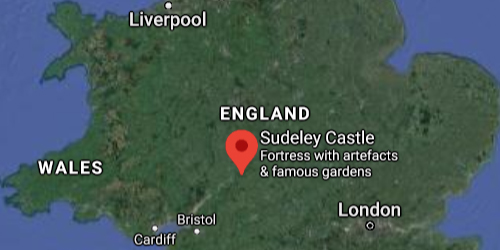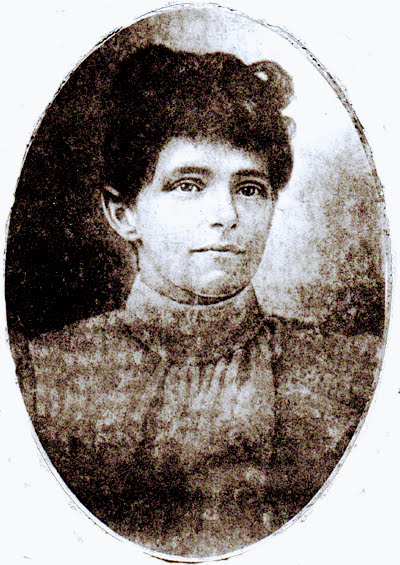-
The Boring Stuff
The Harling family, through my father’s father’s mother, can be traced back a very long way. This is thanks to David Eaves of Clithero, Lancashire, who doggedly uncovered branches of the Eaves family tree (my Great-Grandmother’s family) stretching back to the Norman invasion.

Fishwick Eaves, where it started. I met David via the Internet, in the days before social media and, more importantly, on-line genealogy programs, when we still writing to, or physically visiting, record offices and painstakingly recording our findings by hand. In this manner, I was able to trace my great-grandfather, John Harling, back to the early 1800s, which I thought was pretty good. At that point, however, I came upon a dead end that I have still not been able to bypass.
Then, somehow, I encountered David, who is distantly related to me via a common ancestor some 15 generations back (Ralph Eyves b. 1485) and he cheerfully shared his research with me, adding hundreds of people, and another 800 years, onto my family tree. Granted, this diverts the lineage through a maternal link, but it’s still impressive.Our most distant, known, relative is one Baron Robert Fitzharold d’Ewyas, born on the 17th of June 1085 in Sudeley, Gloucester, England. The d’ (or de or del), which is of old French origin, suggests he is the offspring of one of the Norman nobles who helped William the Conquerer conquer England. That’s my story, and I’m sticking to it.

Robert married Sibylla who, the research claims, was born in Sudeley Castle, located in the Cotswolds near Winchcombe, Gloucestershire, England, on 17 April 1092. Sudeley Castle is still there, but being born in the castle in 1092 must have been quite a feat, as the earliest records of the castle indicate that it—or, more specifically, a forerunner of the current edifice—may have been built during the reign of King Stephen, who did not come into power until 1135.
Be that as it may, Sibylla and Robert were undoubtedly important people and on 21 May 1125, they gave birth to Robert de Ewias II (they seemed rather casual about spellings back then). Robert Jr. married Petronilla Scudamore and together they produced Sir Nicholas de Ewyas around the year 1200 (it gets a bit woolly here).
Sir Nick was the Holder of Ponefract and Lord Manor of Foliot, Fenwick. He married Alice Foliot and, around 1230, produced Sir John de Ewyas who, I am assured, became the first Member of Parliament for Lancashire. He married Cecily de Samlesbury who, along with at least seven other children, bore Sir Nicholas de Ewyas.
Nick the second married Matilda,who produced a daughter before she died. Nick II then married Joan Darce (or, perhaps, D’arce; they were still pretty French back then) who gave him both a daughter and a son, Thomas de Ewyas.
Here, in the mid-1300s, the “Sir” drops from our name and 1363 finds Thomas living in Samlesbury Hall and, later, Fishwick Eves, under the name Thomas del Eves.
There is no record of a wife, but around this time he has a son, William del Eves, who bought some land at Lea and Preston and became a Yeoman farmer near Fishwick.
Thomas del Eves, born around 1400, was also a Yeoman Farmer at Fishwick, as was his son, Ralph Eyves (born c 1425), who dropped the “del” from our name and re-added the Y, though not the W.
From here, it becomes as enthralling as the First Book of Chronicles, where Ralph begets Ralph (born 1445)
who begets William (c1465)
who begets Ralph (c1485
Who begets Richard (c1510)
Who begets Richard (c1532)
Who begets Ralph (1558)
Who begets Richard (c1585)
Who begets Ralph (1612)
Who begets Richard (1635)
Who begets Thomas (1660)
It is at Thomas where the name changes from Eyves to Eaves.
Thomas begets William (1700)
Who begets Richard (1724)
Who begets William (1744)
Who begets Thomas (1764)
Who begets John (1784)
(Notice how all these dates are an even twenty years apart? I suspect they are estimates, but I’d never say that out loud.)
It is then noted, however, that John, in April 1815—and with the assistance of Peggy Haydock—begets Thomas Eaves, who marries Mary Fletch in 1834 and sires John Eaves in February of 1838.
John goes on to marry Anne, and together they have eight children, one of whom is Annie Eaves, my great-grandmother.
Annie Eaves, in or around 1885, marries John Harling, and it is here that our story begins.
Annie Eaves